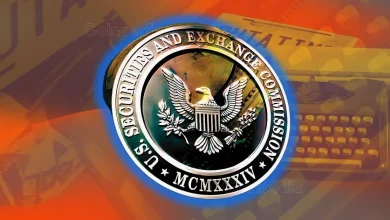
The SEC is suing Coinbase for trading cryptocurrencies that it claims are securities.
Coinbase's Chief Legal Officer, Paul Grewal, has criticized the SEC's arguments, saying that the SEC is making claims about the law without providing any legal references to back them up.
The Securities and Exchange Commission (SEC) has once again found itself in the spotlight, this time for its role in the SEC vs Coinbase lawsuit. The central point of conflict revolves around the SEC’s argument that cryptocurrencies lack any intrinsic value.
But what does this mean for the future of digital currencies, and how might it impact the way we view these innovative assets? Let’s explore.
The SEC’s Argument
The SEC has asked the court to dismiss Coinbase’s assertion that trading cryptocurrencies isn’t a kind of investment agreement. To support its stance, the SEC is using something called the “Howey Test,” which is a well-known legal principle.
For many years, the SEC has used the Howey Test to classify various investments, including things like chinchilla farms and whiskey caskets, as investment agreements. In this case, the SEC is saying that the tokens it’s talking about meet the criteria set out in the Howey Test. However, it’s saying that most cryptocurrencies are different from traditional assets because they don’t have any intrinsic value on their own.
SEC’s recent statement dated 03/10/2023, states –
“Crypto assets are unlike the tangible assets sold in those cases. If crypto assets embody some underlying value (like an entry on a ledger), that value is accessed through the digital token. But the token (which is just software) has no innate or inherent value of its own—it is tied to its underlying value, which for the crypto assets at issue in this case, is the investment contract. Without the access to a service or the intellectual property those crypto assets signify, they would be worthless. After all, investors are not purchasing those assets to own a digital sequence of letters and numbers.”
Also Read: Crypto Expert Bill Morgan Questions SEC’s Cryptocurrency Definitions
Coinbase‘s Response
Paul Grewal, who is Coinbase’s Chief Legal Officer, expressed his dissatisfaction with the SEC’s ongoing arguments. He explained why he thinks the SEC’s claims are “more of the same old same old” in a series of seven posts.
Grewal pointed out that the SEC keeps making claims about what the law is or should be without providing any legal references to back up their arguments. He highlighted this issue in specific parts of the recent statement, such as pages 8, 17-18, and 21.
He further mocks the SEC’s arguments, stating that as per its justifications of what is or is not a ‘security’ (aka an investment contract), “everything from Pokemon cards to stamps to Swiftie bracelets is also securities”.
The SEC vs. Coinbase lawsuit continues to stir up debate and controversy as both sides strongly defend their positions.
Do you think the SEC’s arguments are valid?








